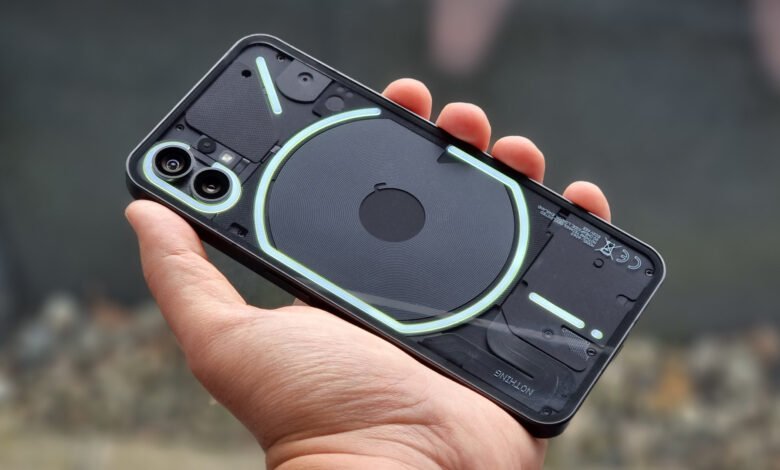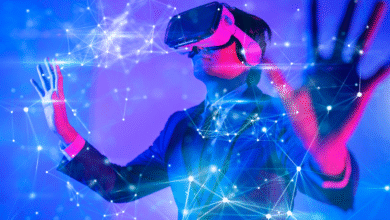The Power of Mobile Technology: How Smartphones are Advancing Scientific Discovery

The rise of mobile technology has brought significant changes to our daily lives, including how we interact with each other, consume information, and even conduct research. Smartphones, in particular, have proven to be a powerful tool in advancing scientific discovery. In this article, we will explore the various ways in which smartphones are contributing to scientific advancements and revolutionizing research.
The introduction of smartphones has made it possible for researchers to conduct studies remotely and collect data more efficiently. With the increasing prevalence of smartphones, researchers can now use these devices to collect data from study participants in real-time, without having to rely on traditional methods such as paper surveys or in-person interviews. This has not only improved the accuracy of data collection but has also made it easier for researchers to reach a larger and more diverse population.
Citizen Science

Citizen science refers to the involvement of the public in scientific research. Smartphones have made it easier for citizens to participate in scientific research by allowing them to collect and share data from their mobile devices. For example, apps like iNaturalist allow users to take photos of plants and animals and share them with a community of scientists who use the data to track species distribution and behavior. This has not only helped to advance scientific research but has also increased public engagement and awareness of scientific issues.
Health Monitoring
Smartphones have also made it possible for individuals to monitor their health and collect data on various health metrics such as heart rate, sleep patterns, and physical activity. This data can be used by researchers to study health trends and develop new treatments for various conditions. For example, research has shown that smartphones can be used to detect early signs of Parkinson’s disease by tracking changes in a person’s voice and movement patterns.
Environmental Monitoring
Smartphones have also been used to collect data on environmental factors such as air quality, water quality, and weather patterns. This data can be used by researchers to study the impact of human activity on the environment and develop solutions to environmental issues. For example, the app AirVisual allows users to monitor air quality in real-time and share the data with researchers who use it to track air pollution levels and develop strategies to reduce pollution.
Virtual Reality
Virtual reality (VR) is another area where smartphones are contributing to scientific advancements. VR technology allows researchers to create immersive environments and study the effects of various stimuli on human behavior. For example, VR has been used to study the effects of social isolation on mental health and to develop new treatments for anxiety disorders.
Robotics
Smartphones have also been used to control robots remotely, allowing researchers to explore dangerous or hard-to-reach areas without putting themselves in harm’s way. For example, robots equipped with smartphones have been used to explore the depths of the ocean and to study volcanic activity.
Artificial Intelligence

Artificial intelligence (AI) is another area where smartphones are contributing to scientific advancements. AI algorithms can be run on smartphones to analyze large datasets and identify patterns and trends that would be difficult for humans to identify. This has led to advances in fields such as medicine, where AI is being used to develop new treatments and predict disease outcomes.
Security Concerns
While the use of smartphones in scientific research has many benefits, there are also security concerns that need to be addressed. Researchers must ensure that the data collected is stored securely and that the privacy of study participants is protected. Additionally, there is a risk of data breaches or cyber-attacks, which could compromise the integrity of the research.
Read More:5G Security: Addressing the Risks and Opportunities of Next Generation Wireless Technology
Conclusion
In conclusion, smartphones have revolutionized scientific research by making it possible to collect data remotely, involve citizens in research, monitor health and the environment, and explore new technologies such as VR and robotics.While there are security concerns that need to be addressed, the benefits of using smartphones in scientific research far outweigh the risks. As technology continues to evolve, we can expect to see even more innovative uses of smartphones in scientific research, leading to new discoveries and advancements in various fields.
FAQs
- How are smartphones being used in citizen science?
Smartphones are being used in citizen science to allow individuals to collect and share data from their mobile devices. Apps like iNaturalist allow users to take photos of plants and animals and share them with a community of scientists who use the data to track species distribution and behavior.
- What is the benefit of using smartphones for health monitoring?
The benefit of using smartphones for health monitoring is that individuals can collect data on various health metrics such as heart rate, sleep patterns, and physical activity, which can be used by researchers to study health trends and develop new treatments for various conditions.
- What is virtual reality and how is it being used in scientific research?
Virtual reality is a technology that allows researchers to create immersive environments and study the effects of various stimuli on human behavior. For example, VR has been used to study the effects of social isolation on mental health and to develop new treatments for anxiety disorders.
- What security concerns are associated with using smartphones in scientific research?
Security concerns associated with using smartphones in scientific research include the need to ensure that the data collected is stored securely and that the privacy of study participants is protected. Additionally, there is a risk of data breaches or cyber-attacks, which could compromise the integrity of the research.
- What are the potential future uses of smartphones in scientific research?
As technology continues to evolve, we can expect to see even more innovative uses of smartphones in scientific research, leading to new discoveries and advancements in various fields. One potential future use of smartphones is in the development of personalized medicine, where data collected from smartphones can be used to tailor treatments to an individual’s specific needs.












One Comment